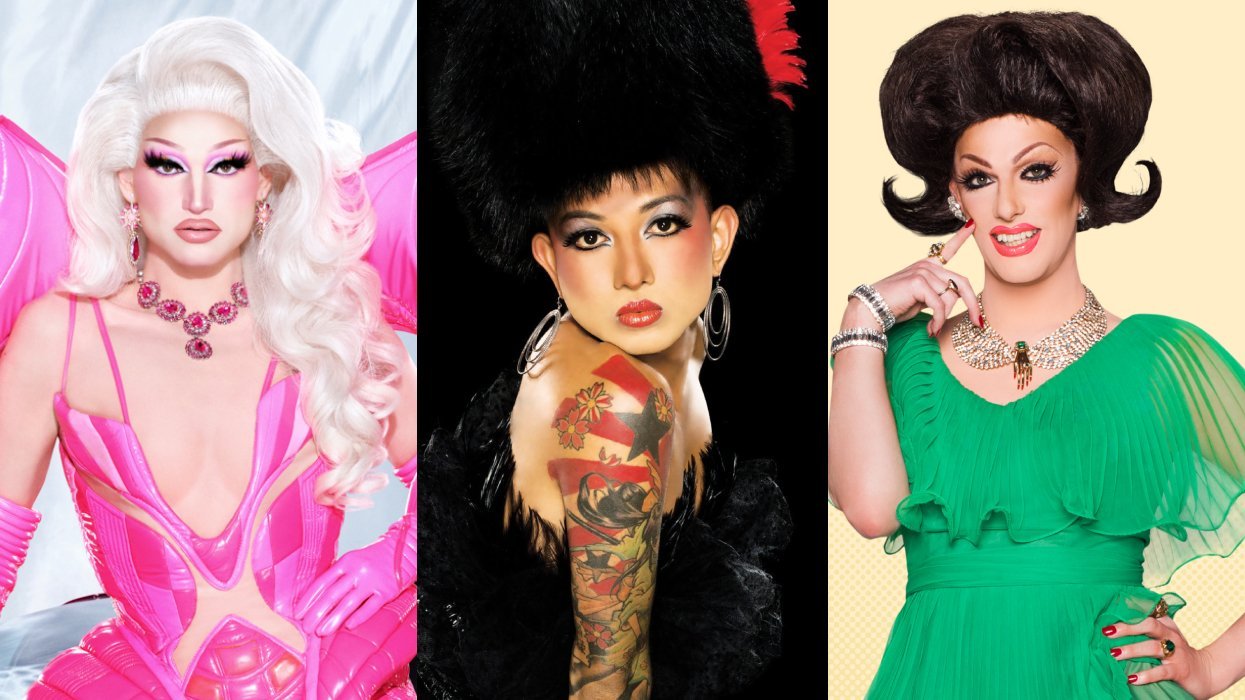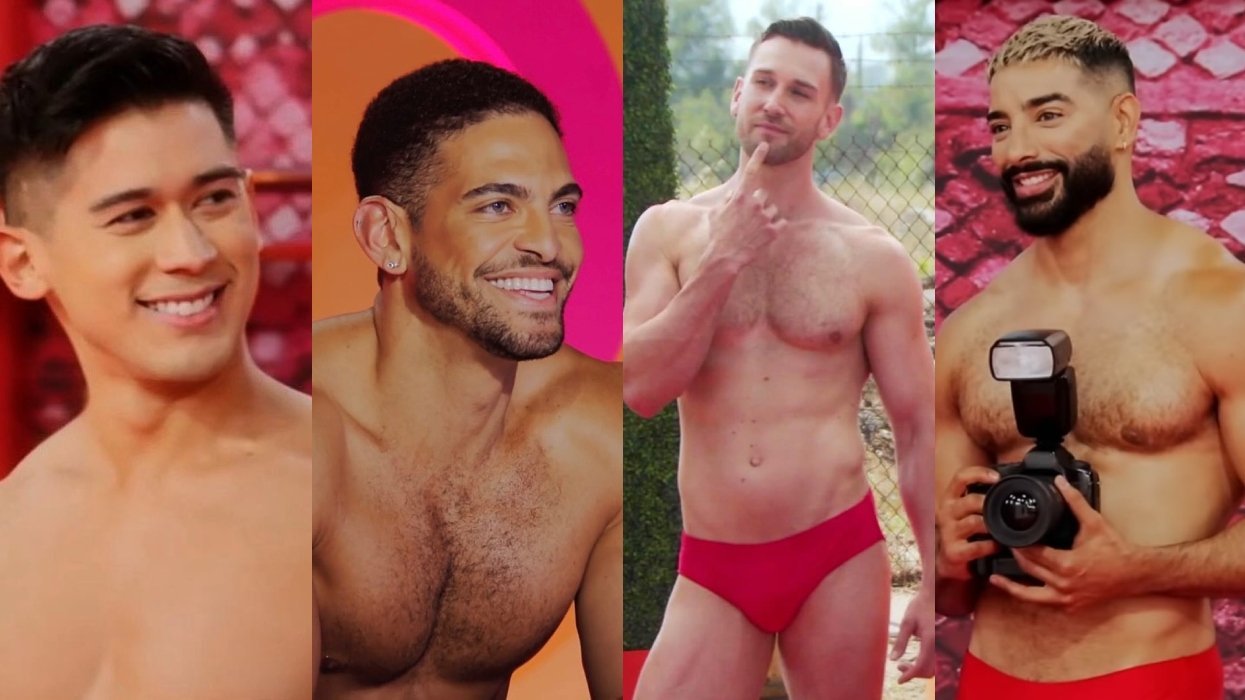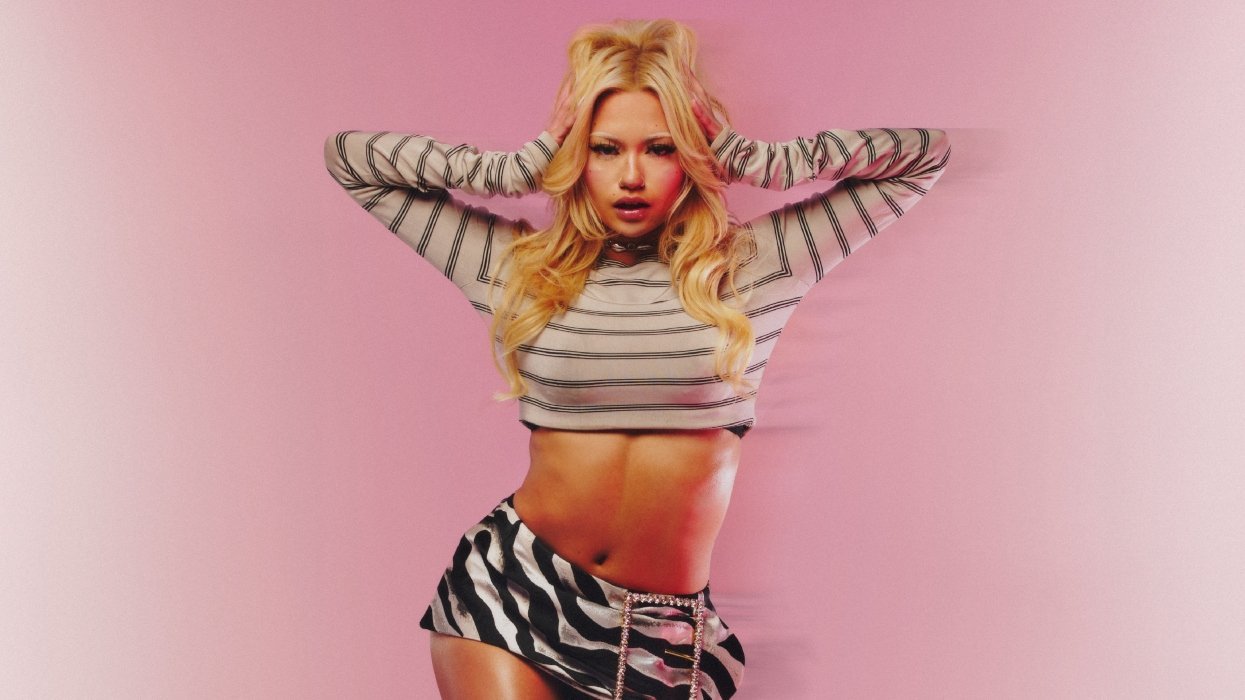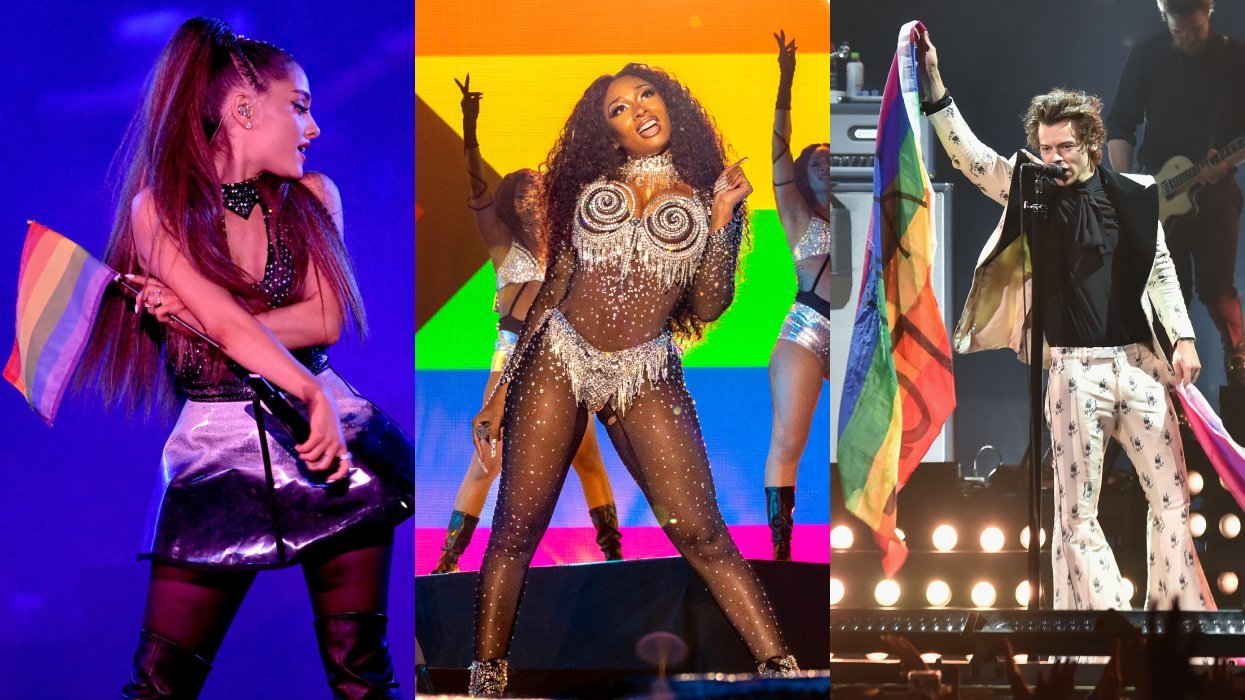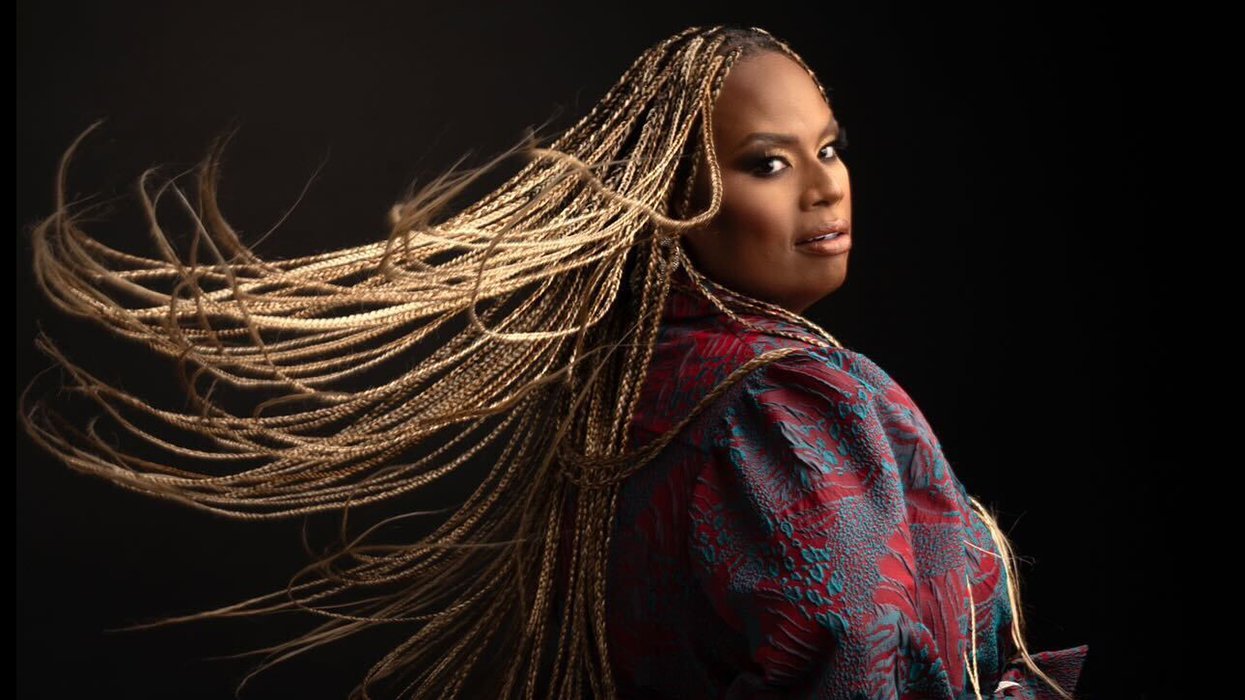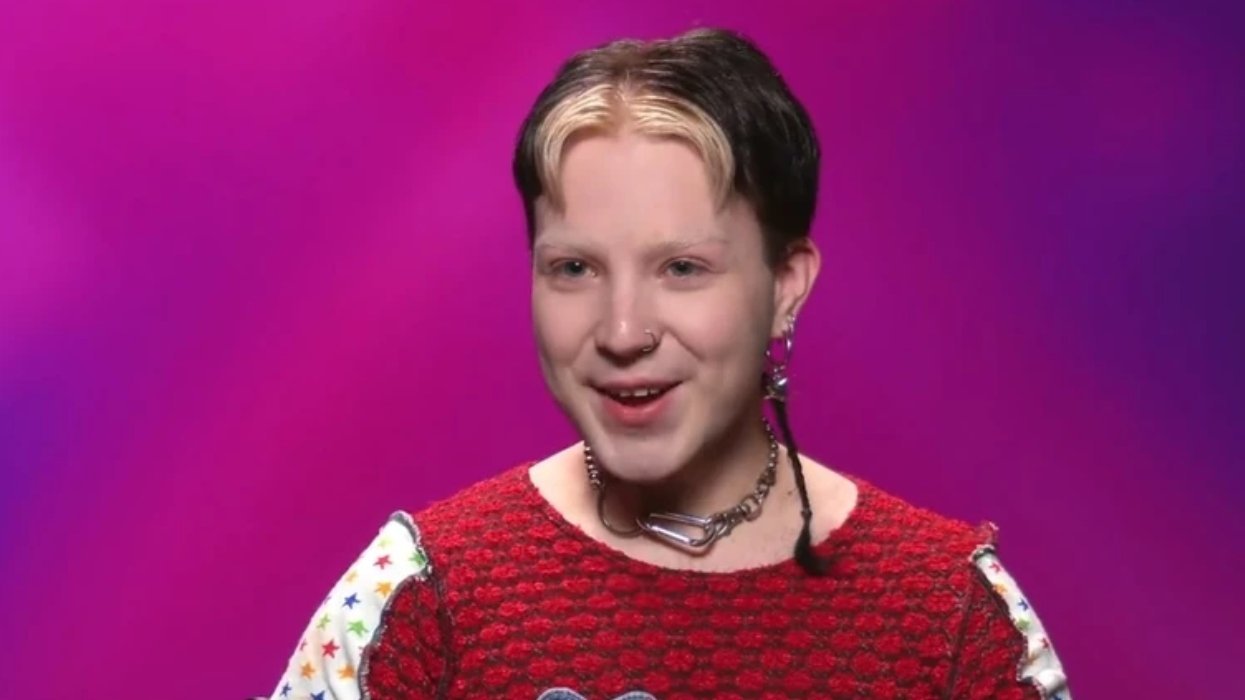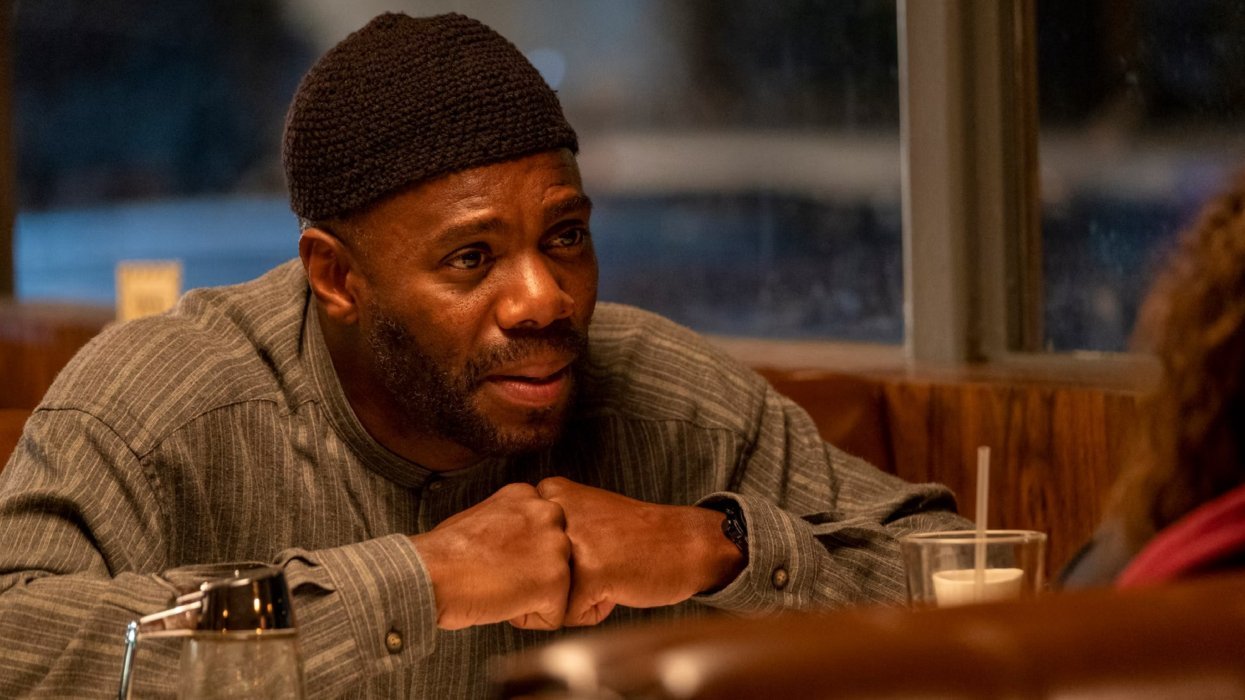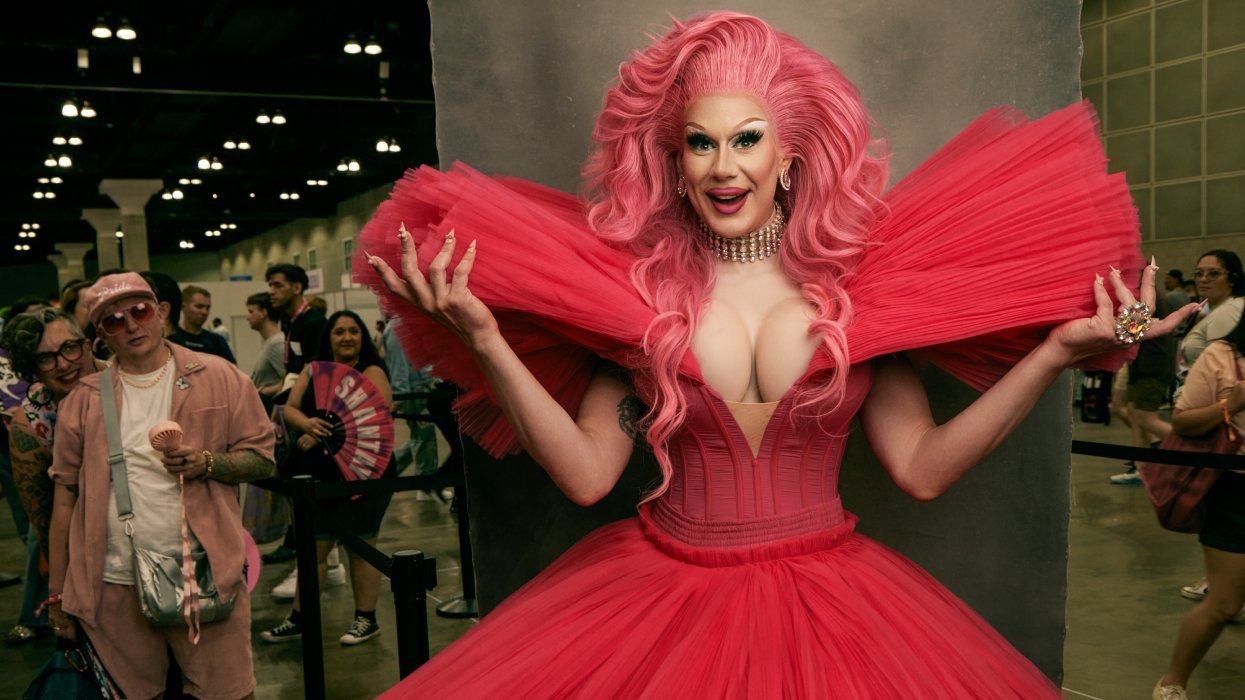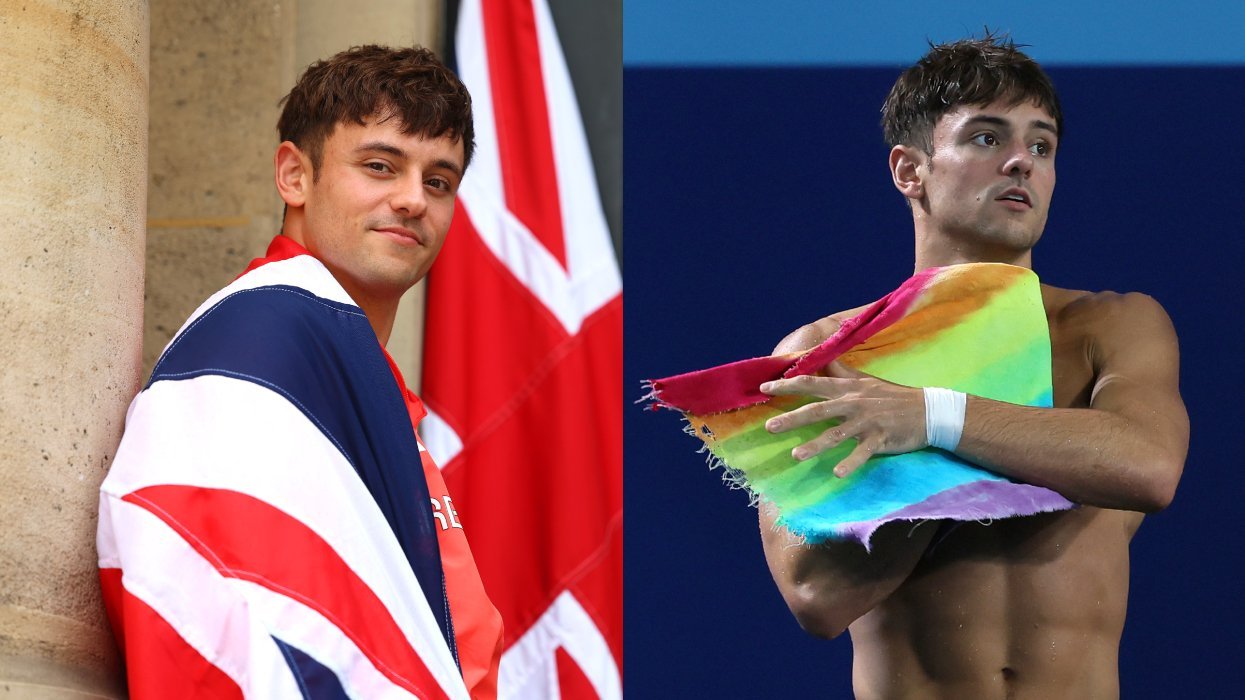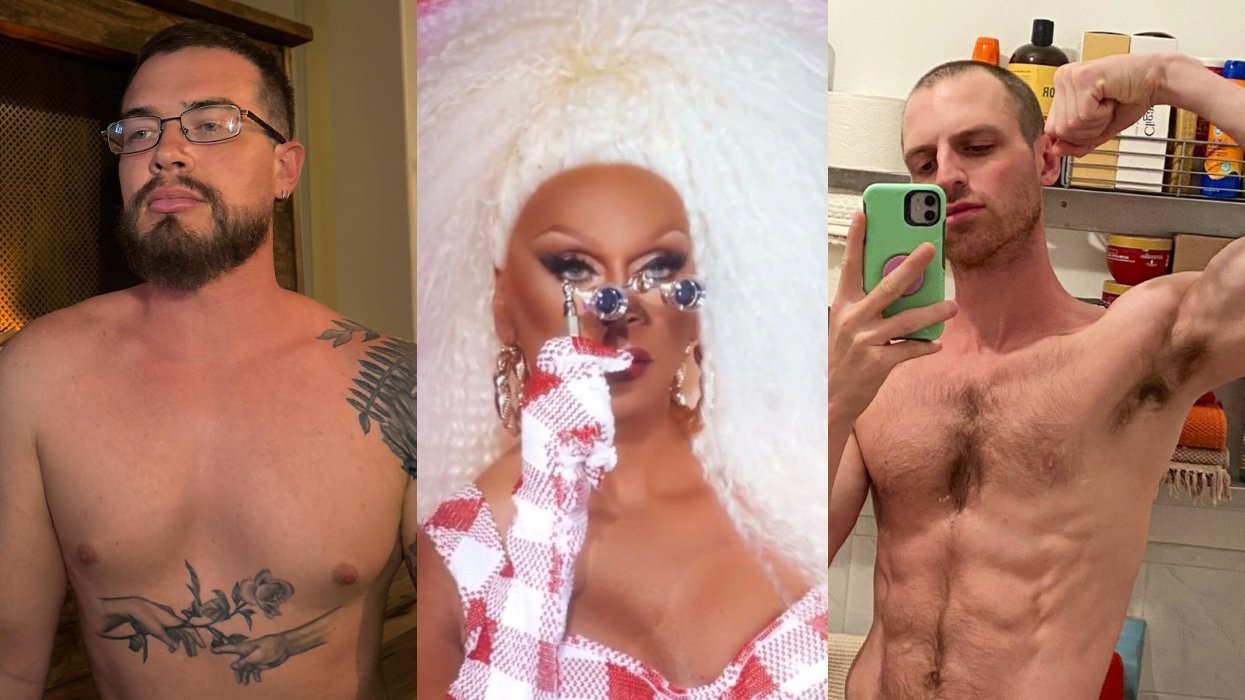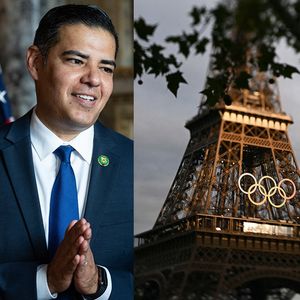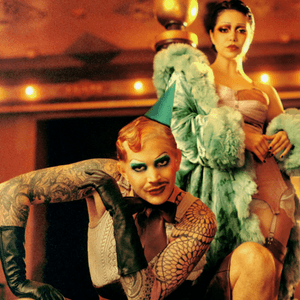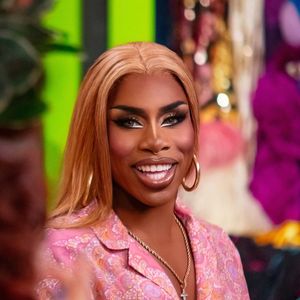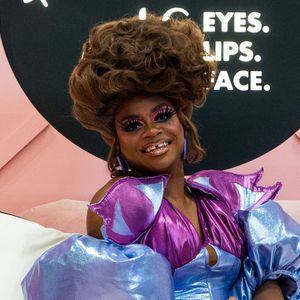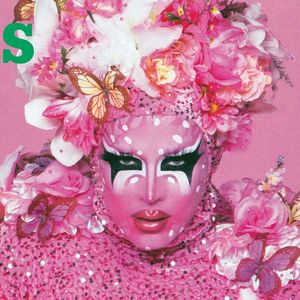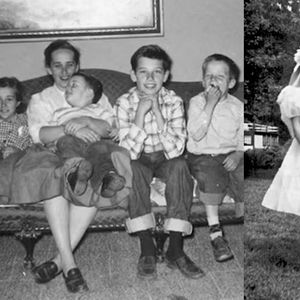Kim Petras is hoping to own the fall the same way she owned the summer -- with captivating singles delivered one on top of the other. When I speak with her the morning after the first show of Troye Sivan's Bloom tour, which she's supporting as an opener until it wraps on November 8, she is days away from the surprise drop of her new Halloween mixtape, Turn Off the Light, Volume 1. For an artist who has largely written cheekily heartfelt bops about the agony and ecstasy of heartbreak, it's something of a musical departure -- dark and sexy, filled with techno beats straight out of the seediest Berlin dungeon (appropriate for a girl who grew up less than 400 miles away in Cologne). The addictive mixtape sounds like the soundtrack from some long-forgotten, campy '80s horror movie, with Petras in the Final Girl role (that is, when she's not playing the slasher). It's another side of Petras, another fantasy from a budding pop star for whom fantasy is the ideal.
Related | Gallery: Every Stunning Image From Our Exclusive Kim Petras Shoot
When Petras wrote her first single, "I Don't Want It at All," a bratty, bubbly anthem about the rabid pursuit of excess -- think Veruca Salt if she'd ditched the golden geese for Gucci -- she was sleeping on a futon in a "shitty ass apartment" in Los Angeles. She was far away from the sugar-baby lifestyle imagined in the lyrics, but imagination was the key. "I'm definitely pop music's greatest scammer," she says with a laugh.
"I'm really into the fantasy," adds the 26-year-old, who grew up idolizing pop stars with outrageous stage personas, from Boy George to Gwen Stefani. Petras's first single landed at a time when pop was still having its stripped-back moment (in the middle of Gaga's Joanne era), and she was eager to bring back a little Top 40 irreverence. "Everybody is so cool right now," she says. "Nobody's singing high songs, everybody's whispering -- it's just a lot of really mellow pop. There's a minimalist thing that's happening right now." Petras, however, is a maximalist. "What I want to do is just the fantasy -- it's so cool to have fun and be flamboyant and dance and sing really loud at the top of your lungs. I just think that's the shit."
 Dress by LaQuan Smith. Earrings by Alessandra Rich. Necklace by Rory Rockmore
Dress by LaQuan Smith. Earrings by Alessandra Rich. Necklace by Rory Rockmore
The fantasy struck a chord, and the song went viral. After years of trying to break into an industry still attempting to navigate in the age of streaming, Petras used the momentum of her first hit and kept them coming. She partnered with Spotify and released single after single, all without the support of a major label. But a hot single making the club rounds was one thing; a career was another. "With a hundred songs coming out every New Music Friday, how do you break out?" Petras wonders aloud. "It's been a thing of figuring it out and trying new things the best way possible to get as much exposure as possible. And at the same time, put out as much music as possible. That's always my goal." Petras wanted her prolific output to help fans get to know her. Those fans are largely queer, which makes sense: Petras's songs are like gay catnip, irresistibly catchy bops about heartbreak and getting wasted. They do what pop songs do best: take something as universal as a crush or a wild night out and turn it into the most perfectly transcendent dance-floor moment, with the help of a few synths, a relentless beat, and a guitar riff. In a year like 2018, when every week our phones buzz with some new political horror, Petras's escapist pop is a blessing for queer people, and it doesn't hurt that she is one of the girls.
Petras gained national attention as a teenager when, at 16, she became the youngest person to ever receive gender-confirmation surgery. She spent her adolescence as an advocate, making documentaries in Europe that aimed to help other transgender kids. Though she had access to the medical necessities of transition, it wasn't easy growing up as one of the world's most visible trans figures -- but being an outsider only made Petras more driven. "In school, I was very antisocial and very unpopular," she says. "People didn't understand me and thought I was freaky. I always felt a little like a freak. And so I just went home and focused on becoming really good at something. I watched pop music videos all day and was like, OK, I'm going to become a great songwriter, and didn't care so much about going to parties or being popular, because I never was."
But now her music and the queer fans who know what it's like to be an outsider have turned her into a pop star. Gay approval can make or break a new diva -- as Samantha Jones said on Sex and the City: "First come the gays, then the girls, then...the industry." Petras not only has the bops, she's actually part of the community best positioned to make her a hit. That doesn't mean, however, that she's interested in being a trans pop star, or even a queer one. "As a human, it's annoying that you have to have a label," says Petras. "You know, you're a 'gay actor' or you're a 'trans artist.' I want people to talk about my music and not my gender identity because, to me, that's what I'm proud of. I'm transgender, but it's just a strong footnote, you know? Yes, that's who I am, but at the same time, what I'm proud of and what I want to be seen for is my music and my art and what I've worked really hard on achieving."
 Dress by Adam Selman. Earrings by Alessandra Rich. Necklace by Rory Rockmore
Dress by Adam Selman. Earrings by Alessandra Rich. Necklace by Rory Rockmore
In September, during the press tour for her film Assassination Nation, actress and model Hari Nef challenged journalists to stop qualifying her by her transness. "Would you introduce Viola Davis as a black actress?" she asked. "Would you introduce Kristen Stewart as a gay actress? Would you introduce Millicent Simmonds as a deaf actress? No? OK, cool -- so please stop introducing me as a trans actress." In a world reckoning with transgender visibility, artists like Nef and Petras are demanding to be acknowledged for their work rather than their identity, but that's not so easy in the era of identity politics, when the personal and the political are more entwined than ever.
Kim Petras doesn't seem all that interested in being political, something non-binary, trans writer KC Clements examined in their Pitchfork article, "What Does It Mean to Be an Apolitical Trans Pop Star?" Clements believes that Petras has "actively eschewed getting involved in politics, particularly around trans issues." It's a position that's somewhat jarring as more underground trans artists (many with less privilege than Petras) are leaning into political activism, using their platforms to promote social causes. "We have this person who could potentially be at least somewhat of a political figure, and instead she's distanced herself from that," Clements said in an interview. But the critique of Petras is balanced with a heartfelt love for her music. "I'm rooting for her," Clements says.
"She makes infectious music in a pop landscape that's disappointing us at every turn," said another fan -- we'll call him Steve. "The pop stars we like who are political aren't really impressing us very much with the actual product."
Part of Petras's reluctance to make her transness the center of her public persona is the fact that she transitioned so long ago, before the advent of trans visibility. "It's a very important part of my life, but at the same time, it's so normal to me," she says. "My whole life, I've just been me, and sometimes I get annoyed when people know me as only that. It's frustrating sometimes." Several labels interested in signing her early in her career wanted to lead with her transness. "I never wanted to do that," says Petras. "I always wanted to lead with the music."
"I would be exhausted too if I had spent my whole life being visible as a trans person," says Clements, "and feeling like you constantly have to be an advocate -- that the sole focus is on your identity. As trans folks, it's so rare that we get to just be joyful and fun and sexy and fall in love and do drugs. There's something I really love about that in her music and her persona."
There's another part of Petras's story she'd rather not have overshadow her music, and that's her working relationship with Dr. Luke, the prolific pop producer who was accused of sexual abuse by Kesha in 2014. The messy legal battle continues to this day, and Petras has been adamant that the conflict has nothing to do with her. When Petras's spot on Troye Sivan's Bloom tour was announced, the singer responded to criticism from Sivan's fans, saying her positive experience with Dr. Luke "does not negate or dismiss the experience of others or suggest that multiple perspectives cannot exist at once." But Petras's fans don't want a canned PR statement, they want the real, honest tea.
"The tea is I respect both of them a lot," Petras says of Luke and Kesha, after a bit of nudging. "I think they're very, very talented. It's an ongoing legal case, and I just literally don't have anything to do with it. It really doesn't involve me. I want it to be between the two of them. That's kind of it. It's a pending litigation, so I can't speak about it. I respect them both and...whatever will happen will happen."
But Petras doesn't seem to grasp that her socially conscious queer audience, who are watching women come forward and speak openly about sexual assault in the wake of #MeToo, want more transparency from the public figures they look up to, even the ones selling fantasy in their music. Kesha accused Dr. Luke of abuse years before Petras started working with him, raising the question, Why did she start working with him in the first place? By her admission, he's only marginally involved in producing her songs. "He kind of comes in and polishes it up," she says. "He changes the melody slightly -- just helps polish it, texture it." But is a bit of industry polish worth being inextricably linked to the man implicated in one of pop culture's nastiest sexual assault cases?
 Dress by Eric Schlosberg. Earrings by Alessandra Rich. Necklace by Rory Rockmore.
Dress by Eric Schlosberg. Earrings by Alessandra Rich. Necklace by Rory Rockmore.
The singer's fans seem willing to cut her some slack, even in a community that rigorously polices its own. "I've come to this awakening about how much harder queer and trans people are on other queer and trans people," says Clements. "We've got all these problematic faves that are cisgender and heterosexual who are constantly getting away with shit, and then somebody like PWR BTTM gets canceled." Clements is referring to the queer punk duo whose career collapsed after multiple sexual assault allegations emerged days before their debut album was scheduled for release. Justice is swift among social justice warriors, but even social justice warriors stan Kim Petras.
"This is one of the first pop stars we've been able to look to and say, 'That person is trans; that person's like me," says Clements, who hopes that Petras will eventually move on to other collaborations and take an active role in trans politics. "It doesn't need to be central to her career or identity, but, to some extent, those of us with more privilege and with access to a wide audience have some responsibility to engage with those issues."
Steve thinks that in Petras's case, visibility is powerful in and of itself. "She's somebody who could be downplaying her trans identity a lot more, because she passes and is white and pretty," he says. "So it's cool that she's open about it. It lends a bit of credibility we wouldn't give somebody who wasn't part of our community."
Whether or not Petras is interested in being a queer pop star, her rise is a powerful symbol in an industry that is finally embracing trans artists and letting them tell their own stories. Petras may not be a perfect pop star, but pop stars aren't really meant to be perfect. We want them to be messy, to make mistakes, to break hearts, and to have their hearts broken -- after all, that makes for the best bops. "To have at least one trans pop star who is making total bangers that I want to dance to...it feels important," says Clements.
In January, Brooklyn DJ Paul Tomasiello got in touch with Petras's team and floated the possibility of doing a short set at a party, and days later they booked a pop-up show. Petras gushed on Instagram how obsessed she was with the Williamsburg crowd, who knew every word of the bridge to her song "Hillside Boys."
Afterward, she joined Tomasiello and a few drag queens upstairs, singing a cappella and playing the then-unreleased "Heart to Break," arguably her best single -- a throbbing, synth-heavy, '80s-style banger with a relentless beat about all the boys you know are bad for you. After a ki with the girls, Petras rejoined the party downstairs, dancing behind the DJ booth for the rest of the night. "She blended in with everybody so easily, and everyone loved her," said the DJ. "She had this great energy. She's really sweet, and she loves to party. She's just...one of us."
But it seems that if Petras is one of us, that relationship can't stop at making great pop music. Art doesn't exist in a vacuum, and the fantasy world Petras is building needs to share space with the reality in which she and the rest of us live. We need her to be transparent and accountable, because the truth is, we need Kim Petras. We need her irresistible escapist pop to help us forget that the world is falling to shit around our ears. We need her as proof that queer people have value in the music industry. We need her to show young trans women that they can be joyful and powerful and sexy and secure the bag. But Kim Petras needs us too, because she's one of the girls, and what are sisters if not the people who hold you up, who read you when you need to be read, and who'll join you on the floor when that song is so good you can't possibly not dance to it.
Photography by Martin Schoeller, Styling by Matthew Mazur. Makeup: Melissa Murdick. Styling assistant: Vittorio Pugliano.
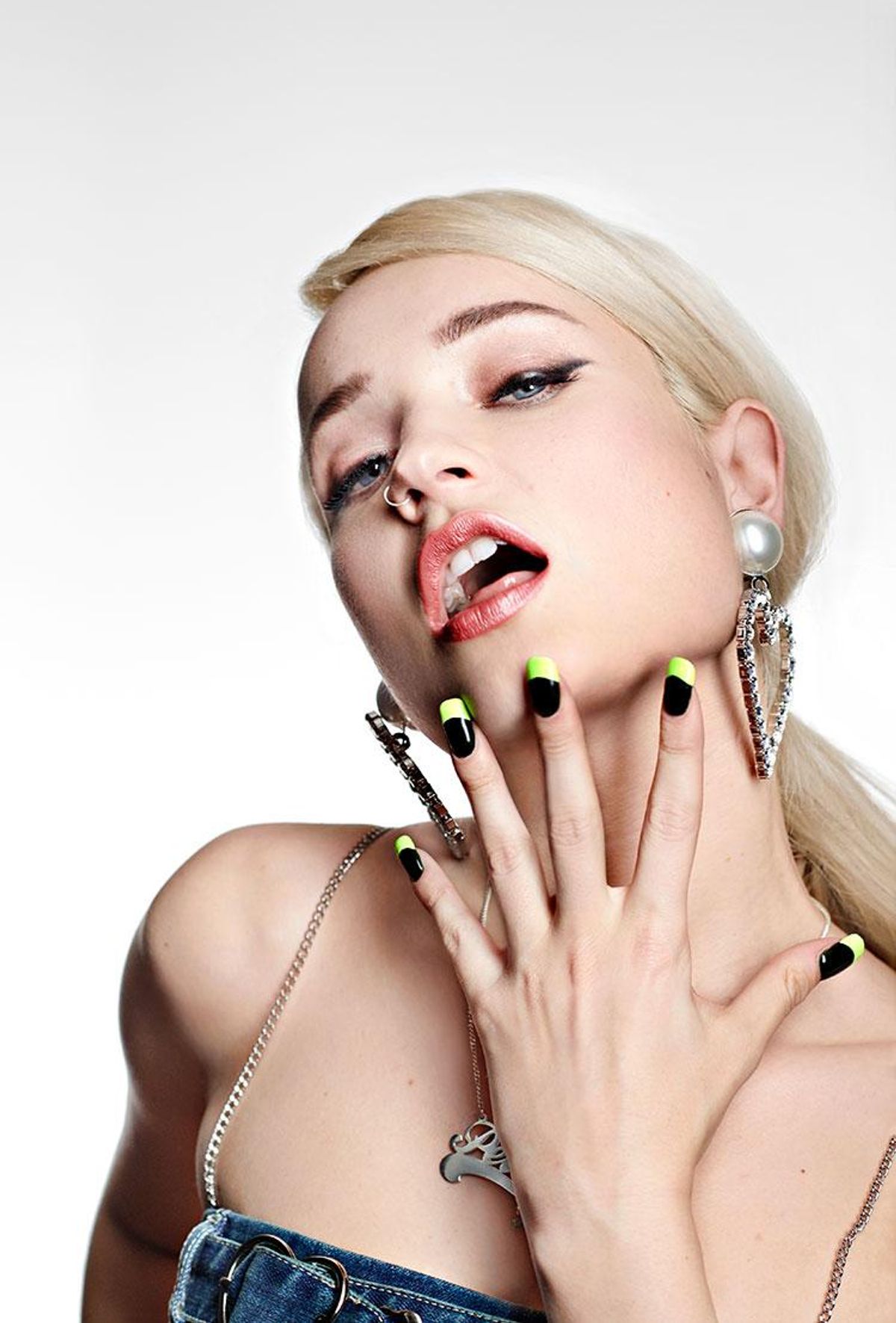



 Dress by LaQuan Smith. Earrings by Alessandra Rich. Necklace by Rory Rockmore
Dress by LaQuan Smith. Earrings by Alessandra Rich. Necklace by Rory Rockmore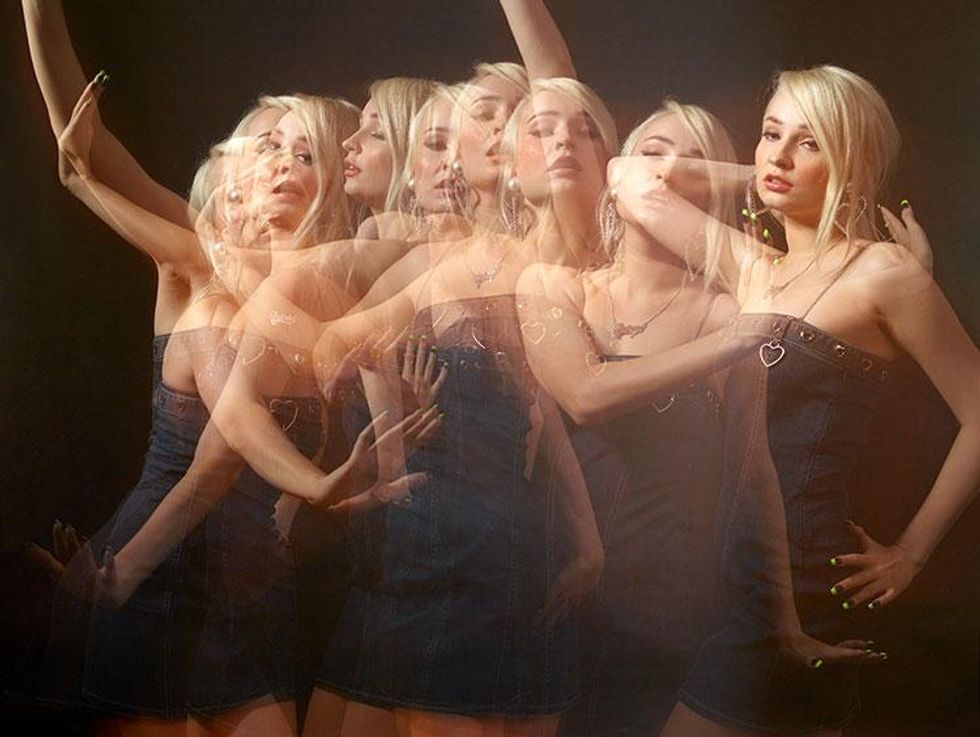 Dress by Adam Selman. Earrings by Alessandra Rich. Necklace by Rory Rockmore
Dress by Adam Selman. Earrings by Alessandra Rich. Necklace by Rory Rockmore Dress by Eric Schlosberg. Earrings by Alessandra Rich. Necklace by Rory Rockmore.
Dress by Eric Schlosberg. Earrings by Alessandra Rich. Necklace by Rory Rockmore.







